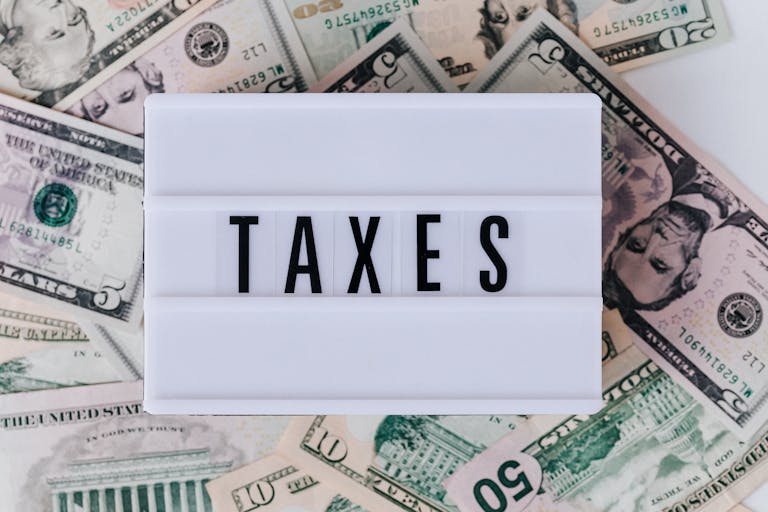Are You a Spender or a Saver? How Your Money Personality Affects Your Finances

Ever wonder why some people squirrel away every dollar while others treat payday like a confetti cannon? It’s not just about habits—it’s about personality. Understanding your money personality can be the missing piece in your budgeting puzzle. Whether you’re a meticulous saver or an impulsive spender, your financial tendencies have a direct impact on how you manage, save, and grow your money.
What Is a Money Personality?
Your money personality is the set of attitudes, behaviors, and emotions you bring to your finances. It’s not just how you spend or save—it’s how you feel about money and what drives your decisions.
Psychologists and financial planners often break money personalities into key types. Most people are a blend, but you’ll probably notice one that feels a little too familiar.
The 5 Common Money Personality Types
1. The Spender
Spenders enjoy the thrill of shopping and often find value in treating themselves and others. They may be generous and fun—but they’re also at risk of overspending or accumulating debt.
Signs you might be a spender:
- You buy things to reward yourself or relieve stress
- You rarely track your purchases
- You often justify spending with “I deserve this”
Financial Tip: Use a budget that includes “fun money.” Allocating guilt-free spending can help you stay on track without feeling deprived.
2. The Saver
Savers are typically cautious, conservative, and focused on long-term financial goals. They may be debt-averse and feel a sense of control by watching their savings grow.
Signs you might be a saver:
- You track every expense, down to the penny
- Sales and coupons excite you more than splurges
- You delay gratification almost instinctively
Financial Tip: Don’t forget to live a little. Too much saving without enjoying the present can lead to burnout—or even resentment toward your budget.
3. The Risk-Taker
This type loves the thrill of investing, starting new businesses, or jumping on the next crypto trend. They’re visionary and confident—but also vulnerable to volatility.
Signs you might be a risk-taker:
- You’re comfortable putting money into high-risk, high-reward ventures
- You act fast when an opportunity arises
- You thrive on uncertainty (and maybe a little adrenaline)
Financial Tip: Keep a separate “risk” bucket for speculative investments. Make sure your emergency fund and retirement are secured before chasing the moon.
4. The Avoider
Avoiders don’t like dealing with money and often ignore their finances until they’re forced to face them. Bills may pile up—not necessarily from lack of funds, but from lack of attention.
Signs you might be an avoider:
- You don’t check your bank account regularly
- Budgeting sounds overwhelming or boring
- You put off financial tasks (taxes, bills, savings plans)
Financial Tip: Automate everything—savings, bill payments, investment contributions. The less you have to manually manage, the better.
5. The Security Seeker
Security seekers want stability, predictability, and peace of mind. They prioritize insurance, emergency funds, and long-term planning.
Signs you might be a security seeker:
- You prefer low-risk, steady growth in your investments
- You research every financial move thoroughly
- You find comfort in having a safety net
Financial Tip: Don’t let fear hold you back from opportunities. A well-balanced plan includes both safety and growth.
Why Your Money Personality Matters
Once you understand your tendencies, you can build a budget and financial plan that actually works for you. Here’s how:
- Better budgeting: Spenders might need structure, savers might need flexibility. Customizing your budget to your personality makes it sustainable.
- Smarter investing: Knowing your risk tolerance helps you choose the right investment strategy.
- Improved communication: If you’re in a relationship, understanding your partner’s money personality can reduce financial stress and improve planning.
- Goal alignment: Your personality affects how you set and pursue financial goals—awareness can help you adjust your path without guilt or frustration.
Final Thoughts: Embrace, Don’t Erase
There’s no “right” or “wrong” money personality—just different styles. The key is awareness. When you know your financial tendencies, you can make smarter choices, sidestep your weak spots, and build on your strengths.
So—are you a spender, a saver, a risk-taker, or something in between?
Whichever you are, your financial personality isn’t fixed. It’s a tool. And once you start using it intentionally, you’ll be well on your way to making smarter money moves.







